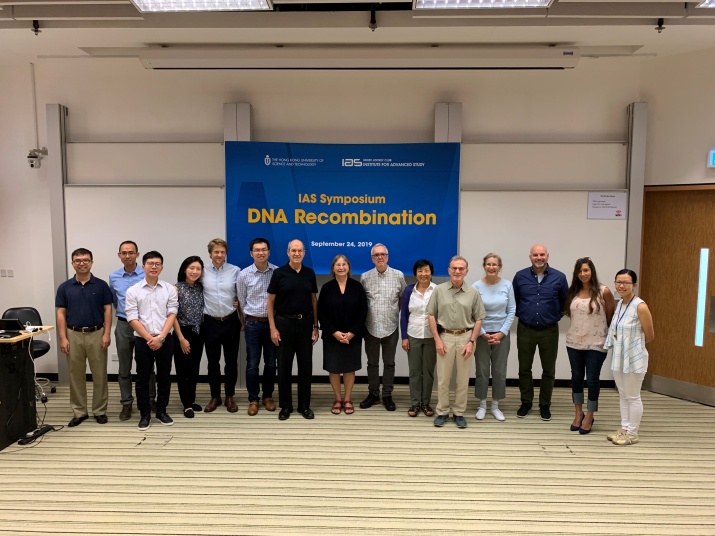DNA Recombination
Overview
DNA recombination is the exchange of DNA strands to produce new nucleotide sequence arrangements. Recombination occurs typically, though not exclusively, between regions of similar sequence by breaking and rejoining DNA segments, and is essential for generating genetic diversity and for maintaining genome integrity. It is the basic principle for gene editing with engineered nucleases such as CRISPR and TALEN.
Speakers
|
R. Daniel CAMERINI-OTERO |
National Institutes of Health, US |
|
Dieter EGLI |
Columbia University Irving Medical Center |
|
Michael HUEN |
The University of Hong Kong |
|
Scott KEENEY |
Howard Hughes Medical Institute; Memorial Sloan Kettering Cancer Center |
|
Pei Xin LIM |
Memorial Sloan Kettering Cancer Center |
|
Rodney ROTHSTEIN |
Columbia University Irving Medical Center |
Schedule
|
09:00 - 09:35 |
"Poetry in Motion: Increased Chromosomal Mobility after DNA Damage" |
|
09:35 - 10:05 |
"Double Strand Break Repair in the Human Preimplantation Embryo" |
|
10:05 - 10:25 |
"Consequences of Monoallelic Mutation of Recombination Genes" |
|
10:25 - 10:55 |
Group Photo Taking and Coffee Break |
|
10:55 - 11:25 |
"Ensuring Sex Chromosome Recombination in Mouse Meiosis" |
|
11:25 - 11:55 |
"The Interplay Between Meiotic Replication and Recombination in Mice and Humans" |
|
11:55 - 12:15 |
"Coordinating DNA Double-Strand Break Repair with Transcription" |
Organizers
|
Maria JASIN (Honorary) |
Memorial Sloan Kettering Cancer Center |
|
Bik-Kwoon TYE |
HKUST (IAS Senior Member) |



